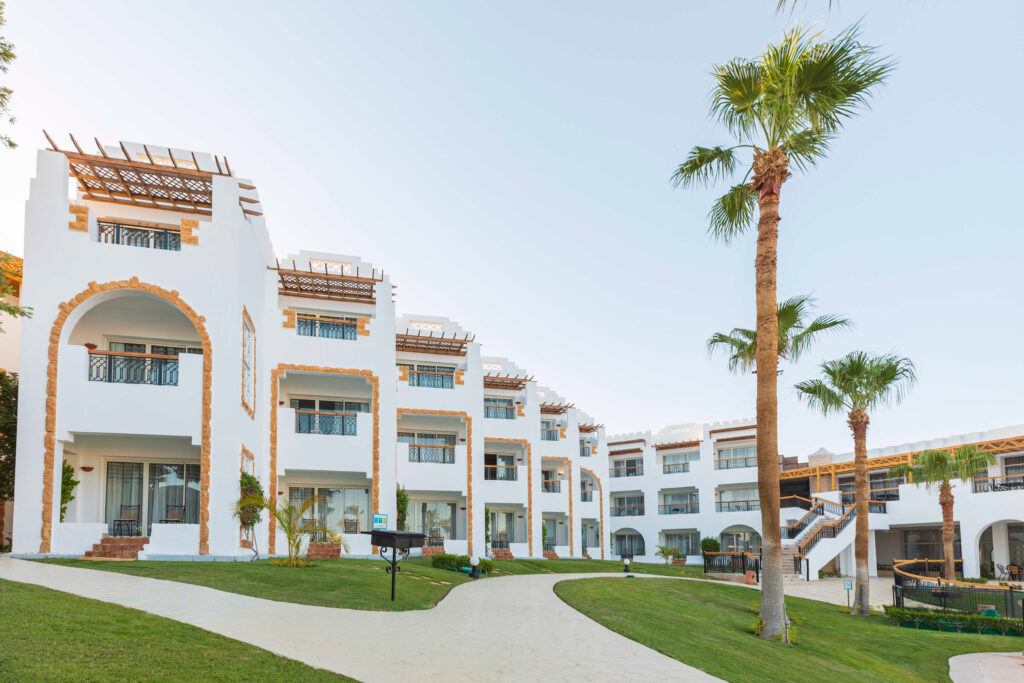Kosovo, a vibrant and emerging nation in the heart of the Balkans, offers exciting opportunities for aspiring real estate agents. As the country develops economically and urbanization increases, the real estate market has become vital to Kosovo’s growth. Whether you’re a local looking to build a career or a foreigner interested in tapping into the market, the job of a real estate agent in Kosovo offers a rewarding path. This guide will help you understand the steps, benefits, challenges, and opportunities associated with entering the real estate sector in Kosovo.
Overview
Real estate agents in Kosovo play a crucial role in facilitating property transactions, including buying, selling, renting, and leasing residential, commercial, and industrial properties. The industry is characterized by a mix of traditional practices and modern innovations, offering diverse opportunities for professionals. To succeed, agents must understand the local market dynamics, legal processes, and client preferences. With Kosovo’s growing economy and increasing foreign investment, the demand for skilled real estate agents continues to rise.
Benefits of Being a Real Estate Agent
Lucrative Career Opportunities:
The growing property market in cities like Pristina and Prizren creates significant earning potential for agents.
Flexibility:
Real estate agents can often set their schedules and work independently or within an agency.
Diverse Clientele:
The mix of local buyers and international investors allows us to work with a wide range of clients.
Involvement in Economic Development:
Agents contribute to Kosovo’s urbanization and modernization, making their work impactful and rewarding.
Career Growth:
The dynamic nature of the real estate market offers opportunities for personal and professional development.
Needed Licenses
Becoming a real estate agent in Kosovo requires adherence to specific legal and professional standards. Key steps include:
Education:
While there are no mandatory degree requirements, courses in business, economics, or property management are advantageous.
Training Programs:
Real estate training programs covering property valuation, negotiation, and market analysis can benefit aspiring agents.
Business Registration:
Real estate agents must register their business with the Kosovo Business Registration Agency (KBRA).
Licensing:
Agents working independently or through an agency must obtain a license from the relevant municipal or national authorities.
Professional Associations:
Joining organizations such as the Kosovo Chamber of Commerce can enhance credibility and provide networking opportunities.
Current Market Trends
The real estate market in Kosovo is rapidly evolving, driven by urbanization, foreign investment, and local demand. Key trends include:
Urban Growth:
Cities like Pristina and Prizren are experiencing increased demand for residential and commercial properties.
Luxury Developments:
Upscale apartments and gated communities are gaining popularity among affluent buyers.
Affordable Housing:
Government initiatives to provide affordable housing have spurred growth in this sector.
Foreign Investment:
Investors from Europe and beyond are interested in Kosovo’s real estate, mainly commercial properties.
Technology Integration:
Online property platforms and virtual tours transform how real estate transactions are conducted.
Factors Driving the Market
Urbanization:
Kosovo’s urban centers are expanding rapidly, creating a high demand for housing and infrastructure.
Economic Growth:
A growing economy, particularly in sectors like tourism and IT, supports the real estate market.
Foreign Investment:
Favorable laws for foreign investors drive demand for commercial and residential properties.
Diaspora Engagement:
Many Kosovars living abroad invest in property back home, boosting the market.
Tourism Growth:
Increasing tourism encourages investments in hotels, guesthouses, and short-term rental properties.
Challenges in the Real Estate Market
Regulatory Complexity:
It might be challenging to navigate real estate laws and regulations, particularly for foreign purchasers and inexperienced brokers.
Market Transparency:
A lack of centralized property databases can make accurate market analysis difficult.
Economic Volatility:
External factors like global economic conditions can impact the local real estate market.
Regional Disparities:
Urban areas thrive, but rural regions often experience slower growth and lower demand.
Infrastructure Issues:
While improving, some areas still face challenges in infrastructure development, affecting property values.
Real Estate Rules and Restrictions
Kosovo’s real estate sector is governed by specific rules to ensure fair and legal transactions. Key regulations include:
Property Ownership:
Foreigners can purchase property but may face restrictions on agricultural land.
Notary Services:
All property transactions must be notarized to ensure legal compliance.
Taxation:
Real estate transactions are subject to taxes, including capital gains and property transfer taxes.
Construction Permits:
Developers must adhere to strict building codes and obtain necessary permits for new projects.

Kosovo’s History
Kosovo has a rich and complex history, shaped by centuries of cultural exchange and political change. Declaring independence in 2008, Kosovo has been rebuilding and modernizing its infrastructure while preserving its historical landmarks. The country’s historical heritage is reflected in its real estate, with properties ranging from traditional stone houses in rural areas to modern developments in urban centers.
Kosovo’s Nature
Kosovo is a country of natural beauty, with dramatic mountain ranges, lush valleys, and pristine rivers. The Sharri Mountains offer opportunities for hiking and skiing, while the Rugova Gorge is a favorite for adventurers. Properties near these natural landmarks are in high demand, particularly for vacation homes and eco-tourism projects.
Kosovo’s Climate
Kosovo has a continental climate, with warm summers and cold winters. The seasonal variations influence the real estate market, with buyers seeking well-insulated homes for winter and properties with outdoor spaces during the summer.
Kosovo’s Economy
Kosovo’s economy is growing steadily and is driven by the agriculture, IT, and tourism sectors. The country benefits from a young and dynamic workforce and significant remittances from its diaspora. Economic growth fuels the real estate market, particularly in urban areas with high demand for residential and commercial properties.
Kosovo’s Political Situation
Kosovo has made significant progress in establishing political stability since its independence. While challenges remain, the government has implemented reforms to attract foreign investment and improve governance. A stable political environment fosters confidence in the real estate market.
Kosovo’s Attractions
Kosovo, a hidden gem in the Balkans, has unique attractions that blend history, culture, and natural beauty. The picturesque town of Prizren, often called the cultural capital of Kosovo, is a must-visit for its stunning Ottoman-era architecture, cobbled streets, and landmarks such as the Sinan Pasha Mosque and the ancient Prizren Fortress, offering breathtaking views of the city. Pristina, the capital, showcases modern energy alongside historical sites like the National Library and the Ethnological Museum. Nature enthusiasts will find the Rugova Gorge irresistible, with its dramatic cliffs, hiking trails, and opportunities for climbing and exploring caves. The Sharri Mountains, home to ski resorts and diverse wildlife, are perfect for winter sports and outdoor adventures.
For history lovers, the UNESCO-listed Visoki Dečani Monastery is a masterpiece of medieval architecture, housing some of the most well-preserved frescoes in Europe. The historic city of Peja also offers cultural treasures like the Patriarchate of Peć Monastery. Additionally, the vibrant festivals and warm hospitality make Kosovo an inviting destination for travelers. With its scenic landscapes, rich history, and lively urban life, Kosovo is an emerging destination that captivates visitors and offers potential for real estate investment near these attractions.
Best Properties in Kosovo
Modern Apartments in Pristina:
These properties offer urban living with access to amenities and transport links.
Traditional Homes in Prizren:
Restored stone houses in this historic city are famous among culture enthusiasts.
Luxury Villas:
High-end suburban properties cater to affluent buyers.
Commercial Spaces:
Office buildings and retail properties in urban centers are in high demand.
Eco-Friendly Properties:
Homes near natural attractions are designed with sustainability and appeal to modern buyers.
Frequently Asked Questions
What qualifications do I need to become a real estate agent in Kosovo?
While no formal degree is required, completing relevant training and obtaining the necessary licenses is essential.
Can foreigners work as real estate agents in Kosovo?
Yes, provided they comply with local regulations and obtain the appropriate licenses.
What is the average income of a real estate agent in Kosovo?
Earnings vary depending on the location, experience, and property type, but agents in urban centers tend to earn higher commissions.
Which cities offer the best real estate opportunities?
Pristina, Prizren, and Peja are top cities for real estate investments and career growth.
Becoming a real estate agent in Kosovo is a promising career choice in a country with a rapidly developing market. By understanding the legal requirements, market dynamics, and challenges, aspiring agents can build successful careers while contributing to Kosovo’s urbanization and economic growth. With its rich history, stunning nature, and growing economy, Kosovo offers exciting opportunities for real estate professionals to thrive.










